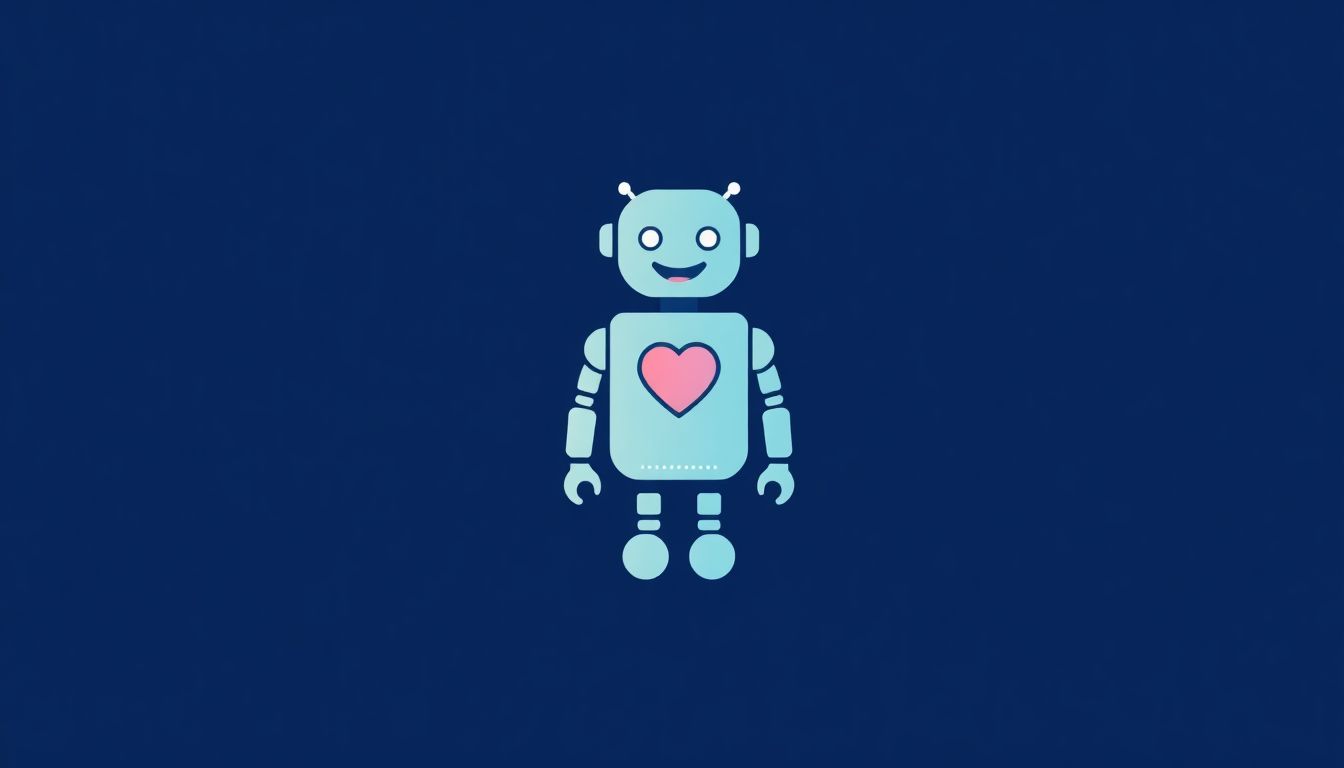Many people wonder how AI chatbots are transforming healthcare today. As the market grows beyond $1.4 billion and promises even more, these tools are making it easier for both patients and providers to thrive. If you keep reading, you’ll see how these chatbots save time, cut costs, and give everyone better access to care.
In fact, by 2025, AI healthcare chatbots will handle everything from appointment booking to mental health support. They’re set to become everyday helpers, making health services more approachable and efficient for everyone involved.
Get ready to learn how these innovative tools are shaping healthcare’s future—and how you can start using them now.
Key Takeaways
Key Takeaways
- By 2025, AI healthcare chatbots will manage tasks like booking appointments and offering mental health support, making care more accessible and efficient.
- The market for healthcare chatbots is growing fast, expected to surpass $10 billion in the next decade, as providers adopt these tools to save time and cut costs.
- Patients benefit from 24/7 support and personalized health info, which improves engagement and reduces the workload for healthcare staff.
- In mental health, chatbots are offering anonymous, immediate support, helping users manage anxiety and stress outside traditional therapy hours.
- Healthcare organizations should set clear goals, train staff, and stay transparent to get the most from AI chatbots and ensure smooth integration.
- Select the right chatbot by considering accuracy, specific needs, and ease of use, involving your team early in the decision process.
- Regular updates, feedback, and new tech integrations keep healthcare chatbots accurate, relevant, and helpful in changing medical environments.
- Ensuring data privacy through secure handling and transparency is critical to build trust, especially in sensitive areas like mental health support.
- Expect new rules and standards around AI in healthcare to emerge, so staying informed and compliant will be key to maintaining effective systems.

Assess the Market Size and Adoption Trends
By 2025, the global healthcare chatbot market surpassed $1 billion, showing just how quickly these tools are gaining ground in the medical field. Experts expect it to hit or even go beyond $10 billion over the next decade, which is a huge jump that highlights how essential AI chatbots are becoming.
We’re seeing more clinics, hospitals, and health startups jumping on board because AI chatbots help save time, reduce costs, and improve patient access—no matter if someone is in a big city or a remote area. Recent trends show use across various healthcare settings, making these bots a trusted part of patient care and administrative workflows.
Highlight Key Benefits for Healthcare Providers and Patients
One of the biggest perks? These AI chatbots cut down on endless admin work, saving hospitals around $3.6 billion by 2025. Think about appointment scheduling, follow-ups, and managing medical records—most of this can be automated now.
Patients love the round-the-clock availability, meaning support isn’t limited to office hours. For example, someone feeling anxious at midnight can get instant responses, which drastically improves access and engagement.
Plus, AI chats boost overall patient experience by making health info more personalized and accessible, helping providers to focus on what really matters—caring for their patients instead of drowning in paperwork.

How AI Chatbots Are Transforming Mental Health Support in 2025
Mental health is a growing focus in healthcare, and AI chatbots are playing a bigger role in supporting mental wellness. Many patients now turn to AI for quick, anonymous support whenever they need it, especially outside of traditional therapy hours.
Tools like Youper and OneRemission offer chat-based emotional support, helping users manage anxiety, depression, and stress. These chatbots provide a safe space for users to express feelings without judgment and get immediate guidance.
Integrating mental health chatbots with other digital health tools allows for continuous monitoring of users’ mood patterns, alerting healthcare providers if intervention is needed. To make the most out of these tools, clinics should consider incorporating mental health chatbots as part of a broader support plan, not just a replacement for professional care.
Strategies for Healthcare Organizations to Maximize AI Chatbot Benefits in 2025
If you’re looking to get the most out of AI chatbots, start by pinpointing clear goals—whether it’s reducing wait times, improving patient engagement, or lowering operational costs. Don’t try to do everything at once; focus on high-impact areas like appointment scheduling or medication management.
Training staff on how to work alongside AI systems is key. Make sure your team understands where AI fits and how it supports their workflow rather than replaces their expertise. Invest in proper infrastructure, such as reliable internet and secure servers, to ensure smooth operation.
Stay transparent with your patients and staff about how AI is used — honesty builds trust. Also, keep an eye on regulatory updates to ensure compliance. Regularly review chatbot performance data to identify opportunities for refinement and better service quality.
How to Choose the Right AI Chatbot Solution for Your Practice
Picking the right AI chatbot for your healthcare setting means balancing features, costs, and ease of integration. First, look for solutions that have proven accuracy—like knowledge graph-based chatbots achieving up to 99% diagnostic accuracy.
Think about the specific needs of your practice—do you need a tool for triage, mental health, or administrative tasks? Companies like Ada Health and Sensely offer specialized platforms that can be tailored.
Another important factor is user experience. The chatbot should be intuitive and engaging to encourage frequent use. Don’t forget to include your team early in the decision process so they can provide valuable feedback on what works best.
Practical Tips to Ensure Your AI Chatbots Stay Up to Date and Relevant in 2025
Healthcare is always changing, and your chatbots need to keep pace. Regularly updating their knowledge bases with the latest clinical guidelines and drug information ensures accuracy. Set up routine reviews of chatbot interactions to spot areas for improvement or misunderstandings.
Leverage feedback from staff and patients to identify common issues or gaps in service. Incorporate new features like integration with wearable devices for real-time health data collection, which can make advice more personalized.
Keep an eye on emerging tech, such as autonomous AI agents that handle simple tasks without human input, to keep your system efficient and relevant. Attending health tech conferences or reading industry reports can help you stay ahead of trends.
Addressing Data Privacy and Ethical Concerns with AI Healthcare Chatbots
Data privacy remains a top concern in healthcare. Ensure your chatbot platform complies with laws like HIPAA by using encrypted communication channels and secure data storage.
Be transparent about how patient data is used and give users control over their information. Employ regular security audits and vulnerability testing to prevent breaches.
When deploying AI in sensitive areas like mental health, maintain ethical standards by avoiding over-reliance on automated responses and ensuring patients can access human support when needed. Building trust goes beyond just security—it’s about being honest and respectful with patient information at every step.
Future Regulatory Trends and How They Will Impact AI Healthcare Chatbots in 2025 and Beyond
Expect regulators to develop more detailed guidelines around AI use in healthcare to ensure safety without stifling innovation. Recent discussions indicate a focus on standardizing AI assessment methods, data handling, and transparency requirements.
Some regions might introduce certifications for AI healthcare tools, making it easier for providers to choose compliant solutions. Staying proactive—by participating in industry discussions and adapting to new standards—helps you avoid compliance surprises.
For healthcare providers, understanding upcoming regulations can help navigate legal risks and secure patient trust. Think of it as laying a solid foundation so your AI systems remain compliant and effective moving forward.
FAQs
AI chatbots help reduce administrative work, lower costs, and improve access to care. They support patient engagement, offer 24/7 assistance, and help streamline scheduling and follow-up, benefiting both healthcare providers and patients.
Chatbots automate appointment bookings, assist with symptom checking, triage, medication adherence, handle insurance questions, and offer mental health support, making care more accessible and efficient.
Major players include Woebot Labs, Sensely, Ada Health, Babylon Health, and Buoy Health, which are adopting hybrid AI models to enhance patient interaction and reduce hospital readmissions.
They increase patient interaction and reduce wait times. Chatbots also help clinicians focus more on care by providing support through ambient listening and data collection, leading to better engagement and operational efficiency.